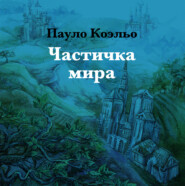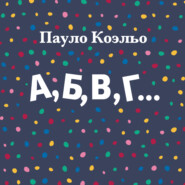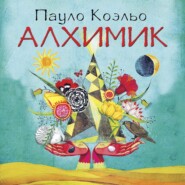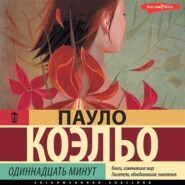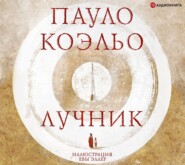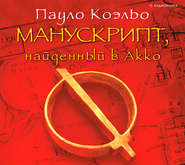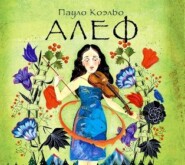По всем вопросам обращайтесь на: info@litportal.ru
(©) 2003-2024.
✖
Like the Flowing River: Thoughts and Reflections
Автор
Год написания книги
2019
Настройки чтения
Размер шрифта
Высота строк
Поля
Just to conclude the story about my neighbour. The expert came and, to my surprise, showed us a French law which states that any tree has to be at least three metres from another property. Mine are only two metres away, and so I will have to cut them down.
In a Bar in Tokyo (#ulink_2173e3e2-f621-57e6-882c-2c87c2f4816f)
The Japanese journalist asks the usual question: ‘Who are your favourite writers?’
And I give my usual answer: ‘Jorge Amado, Jorge Luis Borges, William Blake and Henry Miller.’
The interpreter looks at me in amazement:
‘Henry Miller?’
Then she realizes that it is not her role to ask questions, and she carries on interpreting. At the end of the interview, I ask her why she was so surprised by my response. Was it perhaps because Henry Miller is not considered to be ‘politically correct’? He was someone who opened up a vast world for me, and his books have an energy and a vitality rarely found in contemporary literature.
‘No, I’m not criticizing Henry Miller. I’m a fan of his too,’ she said. ‘Did you know that he was married to a Japanese woman?’
Of course I knew. I’m not ashamed to be enough of a fan to want to find out everything about a writer and his life. I went to a book fair once just to meet Jorge Amado; I travelled forty-eight hours in a bus to meet Borges (and it was my fault that I didn’t, because when I saw him, I froze and couldn’t say a word); I rang the bell of John Lennon’s apartment in New York (the doorman asked me to leave a letter explaining the reason for my visit and said that John Lennon would phone me, but he never did); I had plans to go to Big Sur to see Henry Miller, but he died before I had saved enough money for the trip.
‘The Japanese woman is called Hoki,’ I said proudly. ‘I also know that there is a museum of his watercolours in Tokyo.’
‘Would you like to meet her tonight?’
What a question! Of course I would like to meet someone who once lived with one of my idols. I imagine she must receive visitors and requests for interviews from all over the world; after all, she lived with Miller for nearly ten years. Surely she won’t want to waste her time on a mere fan? But if the translator says it’s possible, I had better take her word for it – the Japanese always keep their word.
I spend the rest of the day anxiously waiting. We get into a taxi, and everything starts to seem very strange. We stop in a street where the sun probably never shines, because a railway viaduct passes right over it. The translator points to a second-rate bar on the second floor of a crumbling building.
We go up some stairs, enter a deserted bar, and there is Hoki Miller.
To conceal my surprise, I exaggerate my enthusiasm for her ex-husband. She takes me to a room in the back, where she has created a little museum – a few photos, two or three signed watercolours, a book with a dedication written in it, and nothing more. She tells me that she met him when she was studying for an MA in Los Angeles and that, in order to make ends meet, she used to play piano in a restaurant and sing French songs (in Japanese). Miller had supper there once and loved the songs (he had spent much of his life in Paris); they went out a few times, and he asked her to marry him.
I see that there is a piano in the bar – as if she were returning to the past, to the day when they first met. She tells me some wonderful stories about their life together, about the problems that arose from the difference in their ages (Miller was over fifty, and Hoki not yet twenty), about the time they spent together. She explains that the heirs from his other marriages inherited everything, including the rights to the books, but that this didn’t matter because the experience of being with him outweighed any monetary compensation.
I ask her to play the same song that first caught Miller’s attention all those years ago. She does this with tears in her eyes, and sings ‘Autumn Leaves’ (‘Feuilles mortes’).
The translator and I are moved too. The bar, the piano, the voice of that Japanese woman echoing through the empty room, not caring about the success of the other exwives, or the rivers of money that must flow from Miller’s books, or the international fame she could be enjoying now.
‘There was no point in squabbling over the inheritance: love was enough,’ she said at last, sensing what we were feeling. Yes, in the light of that complete absence of bitterness or rancour, I think love really was enough.
The Importance of Looking (#ulink_b6c0f458-c0a3-5e73-9ae4-ecab872d1e31)
At first, Theo Wierema was merely a very persistent individual. For five years, he kept sending letters to my office in Barcelona, inviting me to give a talk in The Hague, in Holland.
For five years, my office replied that my diary was full. My diary was not, in fact, always full, but a writer is not necessarily someone who speaks well in public. Besides, everything I need to say is in the books and articles I write, which is why I always try to avoid giving lectures.
Theo found out that I was going to record a programme for a Dutch television channel. When I went downstairs to start filming, he was waiting for me in the hotel lobby. He introduced himself and asked if he could go with me, saying: ‘I’m not one of those people who simply won’t take “No” for an answer; I think I may just be going the wrong way about achieving my goal.’
We must struggle for our dreams, but we must also know that, when certain paths prove impossible, it would be best to save our energies in order to travel other roads. I could have simply said ‘No’ (I have said and heard this word many times), but I decided to adopt a more diplomatic approach: I would impose conditions that would be impossible for him to meet.
I said that I would give the lecture for free, but the entrance fee must not exceed two euros, and the hall must contain no more than two hundred people.
Theo agreed.
‘You’re going to spend more than you’re going to earn,’ I warned him. ‘By my calculation, the cost of the air ticket and hotel alone will cost three times what you will earn if you manage to fill the hall. Then there’s the advertising and the hire of the hall…’
Theo interrupted me, saying that none of this mattered. He was doing this because of what he could see happening in his work.
‘I organize events like this because I need to keep believing that human beings are still in search of a better world. I need to contribute to making this possible.’
What was his work?
‘I sell churches.’
And, to my amazement, he went on: ‘I’m employed by the Vatican to select buyers, because there are more churches than there are church-goers in Holland. And since we’ve had some terrible experiences in the past, with sacred places being turned into nightclubs, condominiums, boutiques, and even sex-shops, the system of selling churches has changed. The project has to be approved by the community, and the buyer has to say what he or she is going to do with the building. We normally only accept proposals that include a cultural centre, a charitable institution, or a museum. And what has this to do with the lecture, and with the other events I’m trying to organize? People don’t really meet together any more, and if they don’t meet, they won’t grow.’
Looking at me hard, he concluded: ‘Meetings. That was the mistake I made with you. Instead of just sending e-mails, I should have shown you that I’m made of flesh and blood. Once, when I failed to get a reply from a particular politician, I went and knocked on his door, and he said to me: “If you want something, you need to look the other person in the eye.” Ever since then, that’s what I’ve done, and I’ve had nothing but good results. You can have at your disposal all the means of communication in the world, but nothing, absolutely nothing, can replace looking someone in the eye.’
Needless to say, I accepted his proposal.
P.S. When I went to The Hague to give the lecture, and knowing that my wife, who is an artist, has always wanted to set up a cultural centre, I asked to see some of the churches that were for sale. I asked the price of one which used to hold 500 parishioners every Sunday, and it cost one euro (ONE euro!), but the maintenance costs can reach prohibitive levels.
Genghis Khan and His Falcon (#ulink_414254d7-dfef-5496-961a-05daef0c66f3)
On a recent visit to Kazakhstan, in Central Asia, I had the chance to accompany some hunters who still use the falcon as a weapon. I don’t want to get into a discussion here about the word ‘hunt’, except to say that, in this case, Nature was simply following its course.
I had no interpreter with me, but what could have been a problem turned out to be a blessing. Unable to talk to them, I paid more attention to what they were doing. Our small party stopped, and the man with the falcon on his arm remained a little way apart from us and removed the small silver hood from the bird’s head. I don’t know why he decided to stop just there, and I had no way of asking.
The bird took off, circled a few times, and then dived straight down towards the ravine and stayed there. When we got close, we found a vixen caught in the bird’s talons. That scene was repeated once more during the morning.
Back at the village, I met the people who were waiting for me and asked them how they managed to train the falcon to do everything I had seen it do, even to sit meekly on its owner’s arm (and on mine too; they put some leather armbands on me and I could see the bird’s sharp talons close up).
It was a pointless question. No one had an explanation. They said that the art is passed from generation to generation – father trains son, and so on. But what will remain engraved for ever in my mind are the snowy mountains in the background, the silhouetted figures of horse and horseman, the falcon leaving the horseman’s arm, and that deadly dive.
What also remains is a story that one of those people told me while we were having lunch.
One morning, the Mongol warrior, Genghis Khan, and his court went out hunting. His companions carried bows and arrows, but Genghis Khan carried on his arm his favourite falcon, which was better and surer than any arrow, because it could fly up into the skies and see everything that a human being could not.
However, despite the group’s enthusiastic efforts, they found nothing. Disappointed, Genghis Khan returned to the encampment and in order not to take out his frustration on his companions, he left the rest of the party and rode on alone. They had stayed in the forest for longer than expected, and Khan was desperately tired and thirsty. In the summer heat, all the streams had dried up, and he could find nothing to drink. Then, to his amazement, he saw a thread of water flowing from a rock just in front of him.
He removed the falcon from his arm, and took out the silver cup which he always carried with him. It was very slow to fill and, just as he was about to raise it to his lips, the falcon flew up, plucked the cup from his hands, and dashed it to the ground.
Genghis Khan was furious, but then the falcon was his favourite, and perhaps it, too, was thirsty. He picked up the cup, cleaned off the dirt, and filled it again. When the cup was only half-empty this time, the falcon again attacked it, spilling the water.
Genghis Khan adored this bird, but he knew that he could not, under any circumstances, allow such disrespect; someone might be watching this scene from afar and, later on, would tell his warriors that the great conqueror was incapable of taming a mere bird.
This time, he drew his sword, picked up the cup and refilled it, keeping one eye on the stream and the other on the falcon. As soon as he had enough water in the cup and was ready to drink, the falcon again took flight and flew towards him. Khan, with one thrust, pierced the bird’s breast.
The thread of water, however, had dried up; but Khan, determined now to find something to drink, climbed the rock in search of the spring. To his surprise, there really was a pool of water and, in the middle of it, dead, lay one of the most poisonous snakes in the region. If he had drunk the water, he, too, would have died.
Khan returned to camp with the dead falcon in his arms. He ordered a gold figurine of the bird to be made and on one of the wings, he had engraved:







